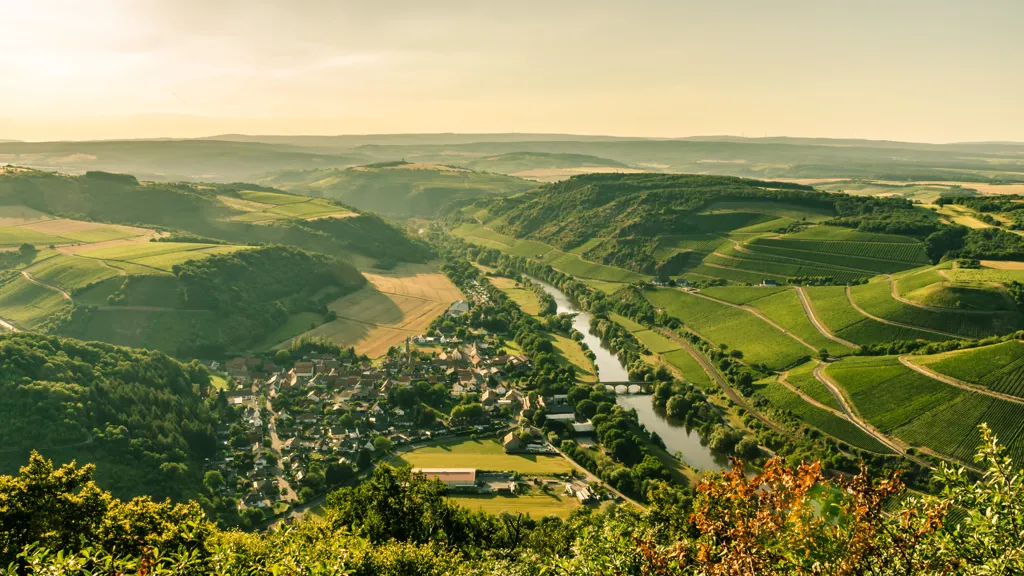
Nahe
The Nahe wine region is located in the German state of Rhineland-Palatinate, and is one of the 13 official German wine regions. It is situated along the Nahe River, which is a tributary of the Rhine, and is known for its diverse range of wines. The Nahe wine region has a long and rich history, with evidence of viticulture dating back to the Roman era. The region was first officially recognized in 1971, and has since become one of the most important wine regions in Germany.
The Nahe wine region is known for its diverse range of wines, with a variety of grapes being grown in the region. The most widely planted grape varieties are Riesling, Müller-Thurgau, Silvaner, and Pinot Noir. The region is also known for its Riesling-based sparkling wines.
The Nahe wine region is home to some of the most renowned winemakers in Germany. Some of the most notable producers in the region include Schäfer-Fröhlich, Dönnhoff, and Schlossgut Diel.
The Riesling grape variety, which is particularly widespread in the Rheingau, first made a name for itself here, as the world's first documented mention of Riesling comes from Rüsselsheim. It is listed in a Rüsselsheim invoice dated March 13, 1435. This invoice is evidence of the first mention of a Riesling vine in the world.



















